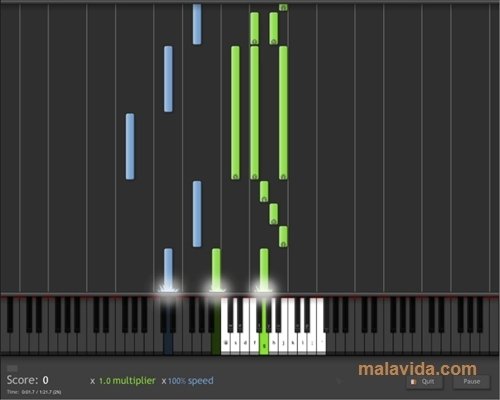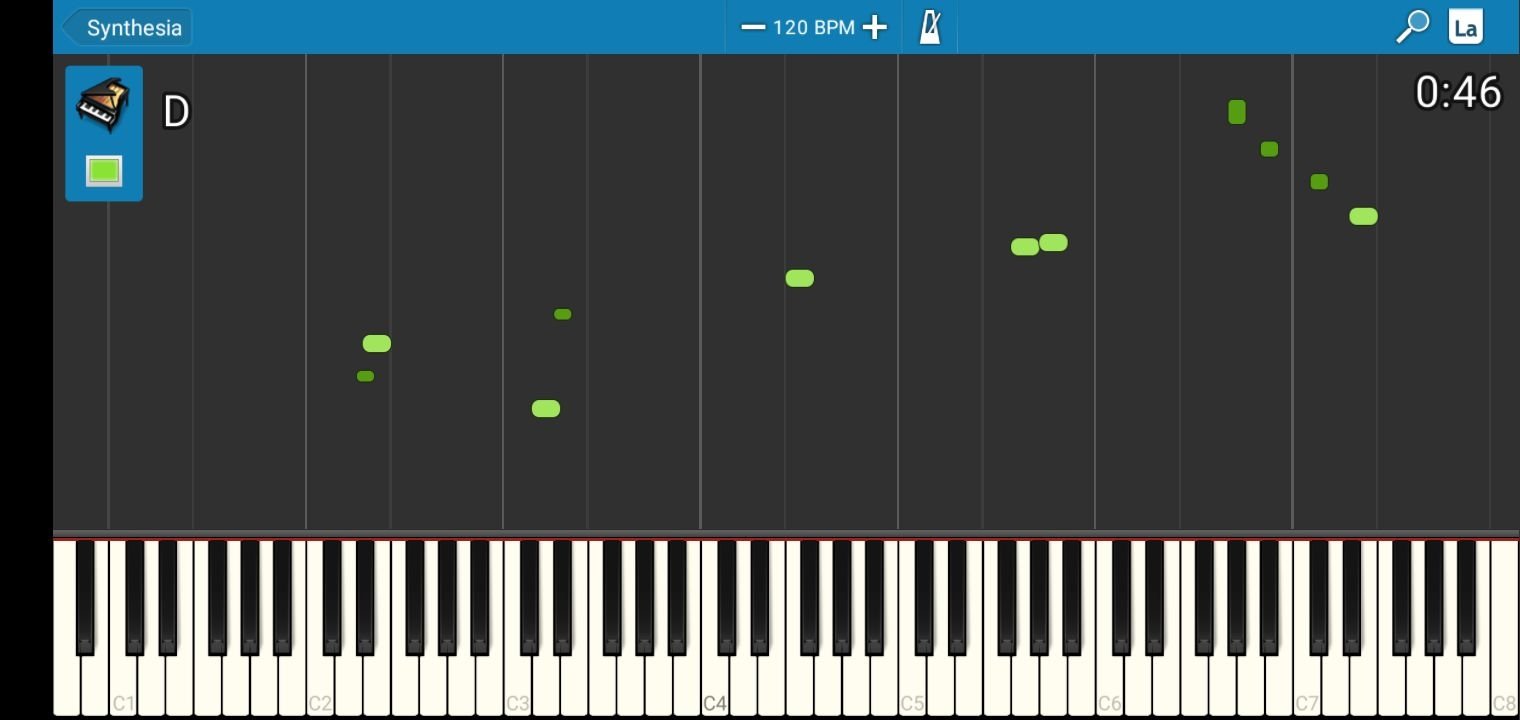

A further class of these games allow for users to provide music that is then processed dynamically by the game to create challenges for that song, so that players are not dependent on the game's developer to extend the game's library of songs. Other similar games include Pteranodon, Rhyme Rider Kerorican, or iS – internal section.
#What is synthesia piano free
In Rez or Free the Beat, for example, the game takes the form of a simple rail shooter however, by integrating sound effects created by the actions of the player (as he completes the normal tasks of rail-shooting) with the soundtrack as a whole, the game is intended to permit the player's direct interaction with the soundtrack and to encourage the creation of a synaesthetic experience.

Often in these hybrid rhythm games, the player plays the game as they normally would but can use the in-game music to time actions often to better their score, thus affecting the interaction between the player and the in-game dynamics as goal of the game. In comparison to the forementioned rhythm games where the rhythm matching is the primary focus and the player's action helps to generate the music that they hear, reactive games let the background music guide the player action, leaving the rhythm gameplay elements secondary to the main gameplay form. Hybrid rhythm games Ī further class of rhythm games are hybrid rhythm games or music reactive games. More recent titles include the Guitar Hero (2005) and Rock Band (2007) series, Beat Saber (2019), and Friday Night Funkin’ (2020). The electronic game Simon is considered the earliest example of a rhythm game, while early games that defined the rhythm-matching aspects include Dance Aerobics (1987) and PaRappa the Rapper (1996). Rhythm games are the most dominant form of the music game genre. This concept also extends to singing games like Karaoke Revolution, with players scored for how well they match the pitch of the vocal track.
#What is synthesia piano series
The wide variety of possible player input have created a range of rhythm games, from Dance Dance Revolution where player input moves on a dance mat, Donkey Konga in which players beat on a conga drum-like controller, and the Guitar Hero series where players simulate the fingering and strumming on a guitar-shaped controller. To improve in such games, players often begin to learn the required actions to memory as to be able to anticipate difficult sections or areas where high scoring is possible. Players are generally scored by not only hitting the right control but how precisely they hit it in time with the music. This may be by performing specific actions on a controller with precision timing as the note is played. Rhythm matching games or simply rhythm games require the player to respond in some fashion in time to music as it is played and shown via the game, all generally to emphasis the rhythm of the song being played. Rhythm-matching games įrets on Fire, an open-source Guitar Hero clone, is an example of a rhythm-matching game. Music games may feature multiple modes for example, Frequency is primary a scored rhythm matching game but also includes a music mixing gameplay feature for players to make their own mixes of the available songs.

These ideas correlate to the subgenres as described below. Instead, it is easier to consider the sub-genres of music video games based on how the player interacts with the music in the game, of which there are four main types as described by the concepts of "matching, making, mixing, and metonymy" as described by Michael Austin, the director of the School of Music at Louisiana Tech University. A game such as Rayman Legends features levels that are based on endless runners but where the player scores better by matching their actions to the musical cues, which could make this a music video game.

As the genre has gained popularity and expanded, music video games have demonstrated the ability to support a range of different styles of gameplay, making the genre itself rather diffuse. This may be where the music is generated in response to the player's actions, or where the player reacts to the beats and notes of the music. Music video games are games where there is typically some type of interactivity of the gameplay with the game's music.


 0 kommentar(er)
0 kommentar(er)
